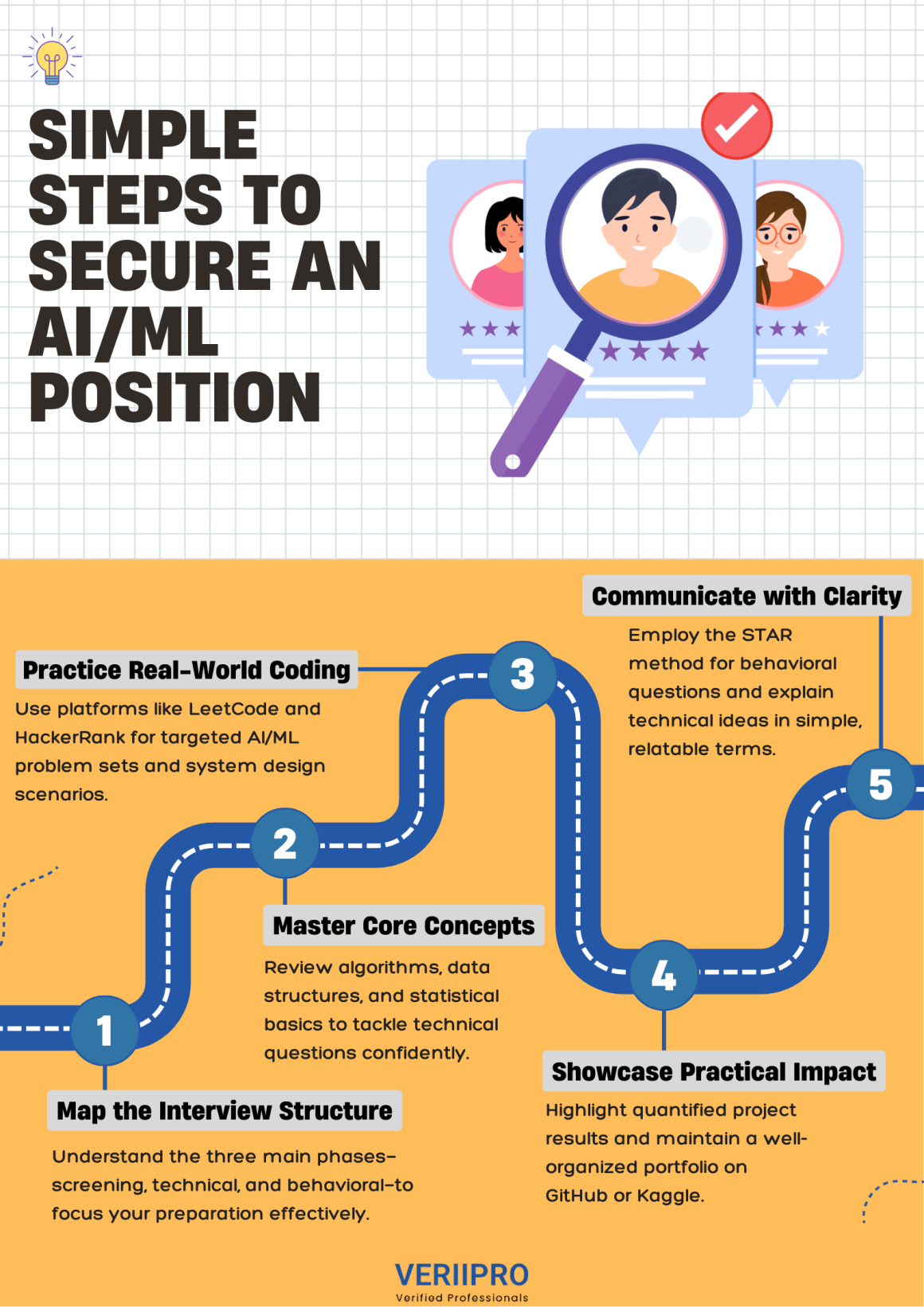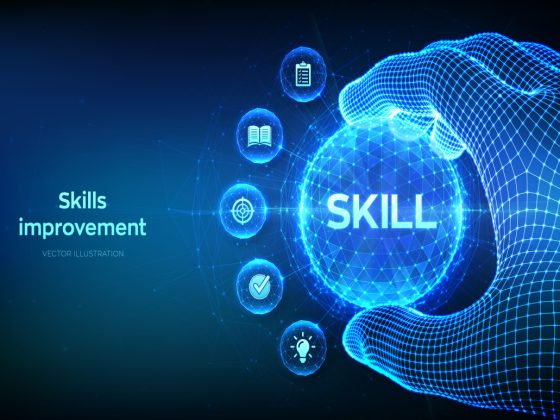Cracking the Code: Interview Tips for Landing an AI/ML Role
In an era where artificial intelligence and machine learning are reshaping industries, securing an AI/ML position has become highly competitive. To stand out, candidates must combine deep technical know-how with polished communication skills and strategic preparation. This article breaks down proven strategies—from mastering core concepts to leveraging AI tools smartly—to help you navigate each stage of the interview process and land your dream AI/ML role.

Understanding the AI/ML Interview Landscape
AI/ML interviews typically unfold in three phases: an initial screening (often phone or video), a technical deep dive, and a behavioral or cultural fit discussion. Recruiters use the screening stage to assess your resume highlights and basic fit, while the technical rounds evaluate your grasp of algorithms, data structures, and machine learning fundamentals. Finally, behavioral interviews explore how you’ve applied your skills in real-world scenarios. Mapping out this flow early lets you tailor your preparation to each phase.
Master the Fundamentals
At the heart of every AI/ML interview are questions on algorithms, data structures, and statistical principles. Dedicate time to reviewing:
- Core algorithms such as sorting, searching, and graph traversals
- Data structures including arrays, linked lists, trees, and hash tables
- Mathematical foundations like probability, linear algebra, and optimization
Platforms like LeetCode Explore offer targeted problem sets for AI/ML roles, helping you translate theory into practice.
Develop Your Coding and System Design Skills
Most AI/ML positions require coding assessments—either live or via take-home assignments. To ace these:
- Practice regularly on sites such as LeetCode and HackerRank to build speed and accuracy.
- Learn common libraries (e.g., TensorFlow, PyTorch, scikit-learn) so you can implement models efficiently.
- Prepare for system design questions by studying how to architect end-to-end ML pipelines, from data ingestion to model deployment. Resources like InterviewNode’s DeepMind guide can help you structure these discussions.
Demonstrate Your Applied Knowledge
Interviewers want to see how you’ve used AI/ML in tangible projects. To showcase this:
- Curate a portfolio featuring Kaggle competitions, open-source contributions, or personal research—hosted on platforms like Kaggle or GitHub.
- Prepare concise project summaries, focusing on objectives, methodologies, results, and lessons learned.
- Quantify your impact (e.g., “Improved model accuracy by 15% using ensemble methods”) to underscore practical value.
Prepare for Behavioral and Situational Questions
Behavioral interviews gauge communication, collaboration, and problem-solving approaches. Use the STAR method (Situation, Task, Action, Result) to craft clear, impactful stories. Common prompts include:
- “Tell me about a time you resolved a project setback.”
- “Describe how you prioritized tasks under a tight deadline.”
Insights from People In AI highlight the importance of reflecting on diverse experiences—technical and interpersonal—to demonstrate adaptability.
Showcase Communication and Collaboration
AI/ML roles often require cross-functional work with product managers, engineers, and stakeholders. To convey strong teamwork skills:
- Explain complex concepts simply, avoiding jargon when possible.
- Ask clarifying questions during the interview to show engagement.
- Discuss how you’ve mentored others or worked in agile teams to illustrate collaborative experience.
Leverage AI Tools Wisely
Modern candidates can use AI assistants like ChatGPT or Perplexity to research companies, refine answers, and simulate mock interviews. However, authenticity is key—over-reliance on generic AI responses can backfire. As recommended by The Guardian, tailor AI-generated insights with personal anecdotes to maintain a genuine voice.
Final Thoughts
After technical and behavioral rounds, a thoughtful follow-up can seal the deal. Send a personalized thank-you email summarizing key discussion points and reiterating your enthusiasm. This small gesture reinforces professionalism and keeps you top-of-mind.
By combining rigorous technical prep, clear storytelling, and strategic use of tools, you’ll be well-positioned to crack the code and secure an AI/ML role.
Looking for opportunities in AI/ML roles? VeriiPro is here to help!








